Visiting cooperatives to collect data
15-05-2023Blog by Jacco Sanderse, intern Agriterra
Jacco is an intern for Agriterra in Rwanda. In his first blog, you could read about his assignment, the Youth-Engagement-Programme and his visit to some rice farmers. Below you can read about his latest experiences.
15 March 2023
Car-free day, a lot of thinking and another workshop!
As I am starting to settle in Rwanda, I am also getting to know more and more about the habits and activities. One of these activities is sports. The government blocks several roads twice a month on Sunday morning from 7-10 am to stimulate sports. It’s an early Sunday morning but I gave it a try. It is good training as I will be joining the half marathon during the Kigali-Peace marathon in June. Together with some colleagues, we will join this event, a nice event for sports and bonding. After the first car-free Sunday my legs had to recover from all the hills, but that cannot spoil the fun.
My legs haven’t been the only muscles to recover in the past two weeks. A lot of reading, thinking, and writing led to a practically finished research design ready for application to the ethics committee by the end of the week.
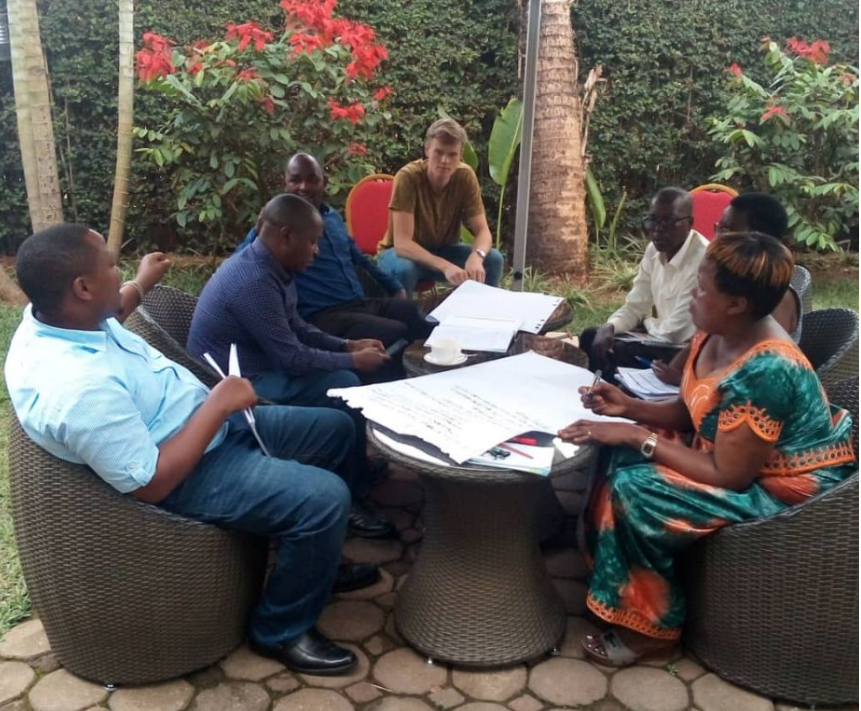
This week my brain muscles can relatively relax while attending another workshop. This time it’s the policy and advocacy training. Eight colleagues from different countries in Africa got a trainer workshop last week and are applying their freshly learned knowledge by training agricultural unions and cooperatives in the FACT lobby method. Similar to the previous workshop it’s very participatory and requires the use of real-life examples to apply the method. A great opportunity for me to learn the method and discover policy issues that I can help address lobbying during my internship.
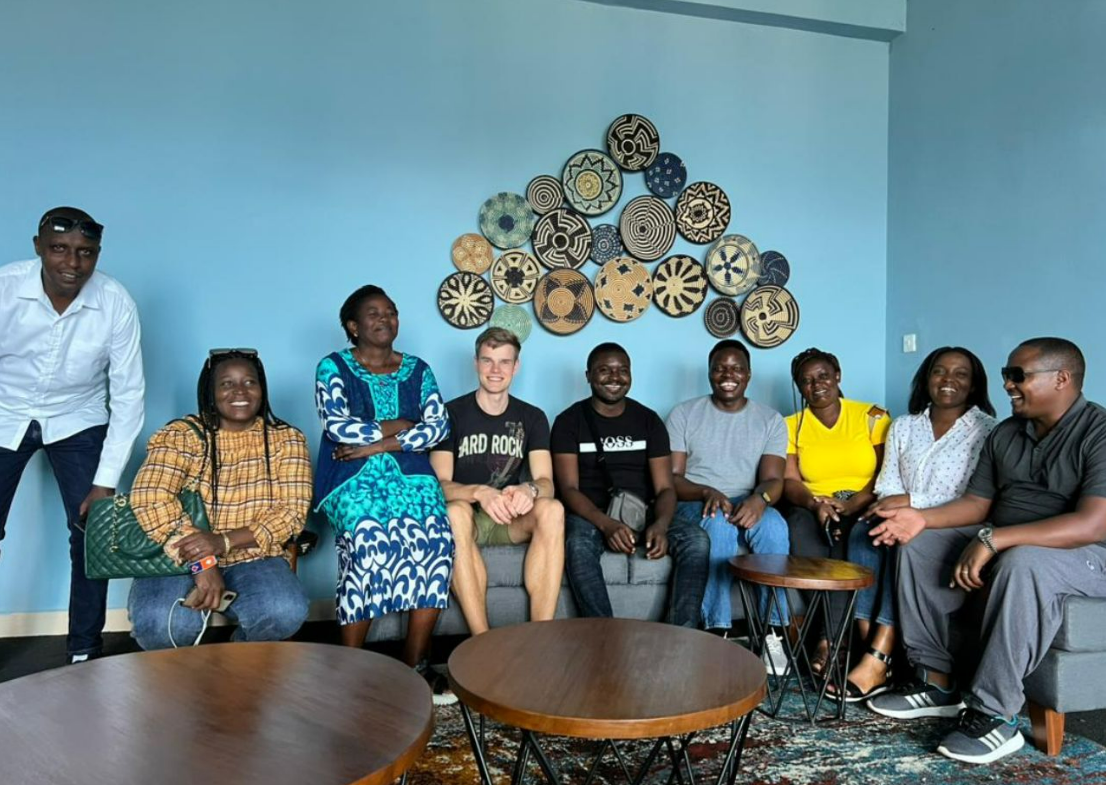
24 March 2023
Research progress and coffee lovers
Since the last blog we’ve finished the lobby and advocacy training, started follow-up meetings and my research has been approved.
My approved research is a great step to ensure I can collect my data soon. This means that next week a colleague and I will visit four cooperatives in two days, each inviting 30 members to fill in my questionnaire. I am very grateful for Agriterra’s help and support. They translated the required documents to Kinyarwanda, informed the local government, and arranged a car including a driver, a hotel, and a fee for the travel costs of respondents. After the data collection, the mourning period of the genocide will begin and there will be few field visits for a few weeks, this allows me to start struggling with getting the data ready for analysis.
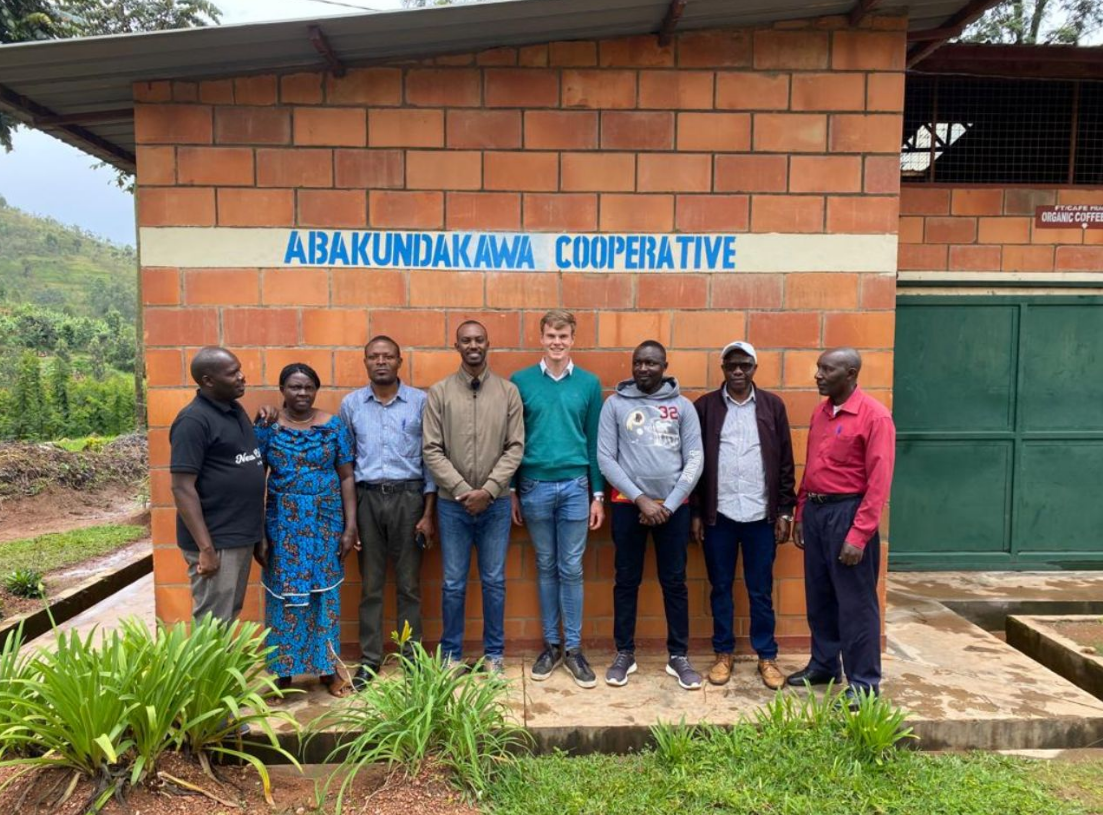
Together with a colleague, we have been visiting cooperatives to support their lobby and advocacy. The first follow-up was a coffee cooperative called AbakundaKawa, which translates to Coffee Lovers. Over some coffee, we started addressing the lobby they’d like to achieve. Although coffee is not burned on a high scale in Rwanda the cooperative did so to provide themselves and their guests with coffee, and a delicious fresh americano was good support for the meeting. The subject to address was lobbying for permission to multiply coffee seeds of a new variety. A new variety has been tested lately and has shown to have an increased yield. The higher yields would support their members in creating better income and living. In Rwanda, all seeds and multiplying of seeds are arranged by the government so this is the actor they have to approach. Following the lobby training they will start by showing the effects of the new coffee variety on the incomes and production.
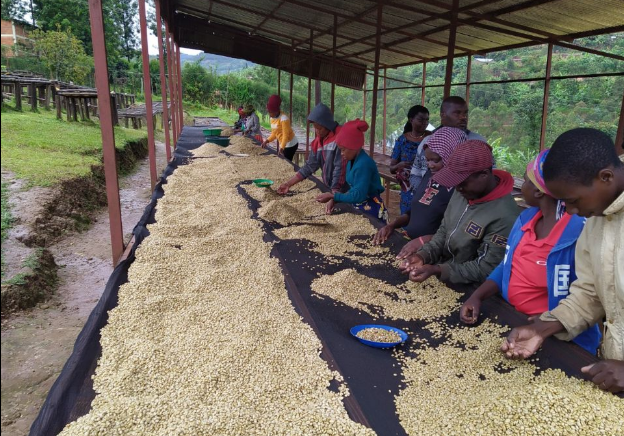
We proceeded by visiting the cleaning, drying, and sorting operations. The harvesting of the coffee just started so the sorting capacity was only at 10%. In the picture below you can see the nets on the hill, which can be used for drying and sorting. If we have a chance of returning, I look forward to visiting the coffee plantation at the top of the mountain. The highest-growing trees are supposed to deliver the highest quality and this could be a chance to see a few more mountains of the thousand.
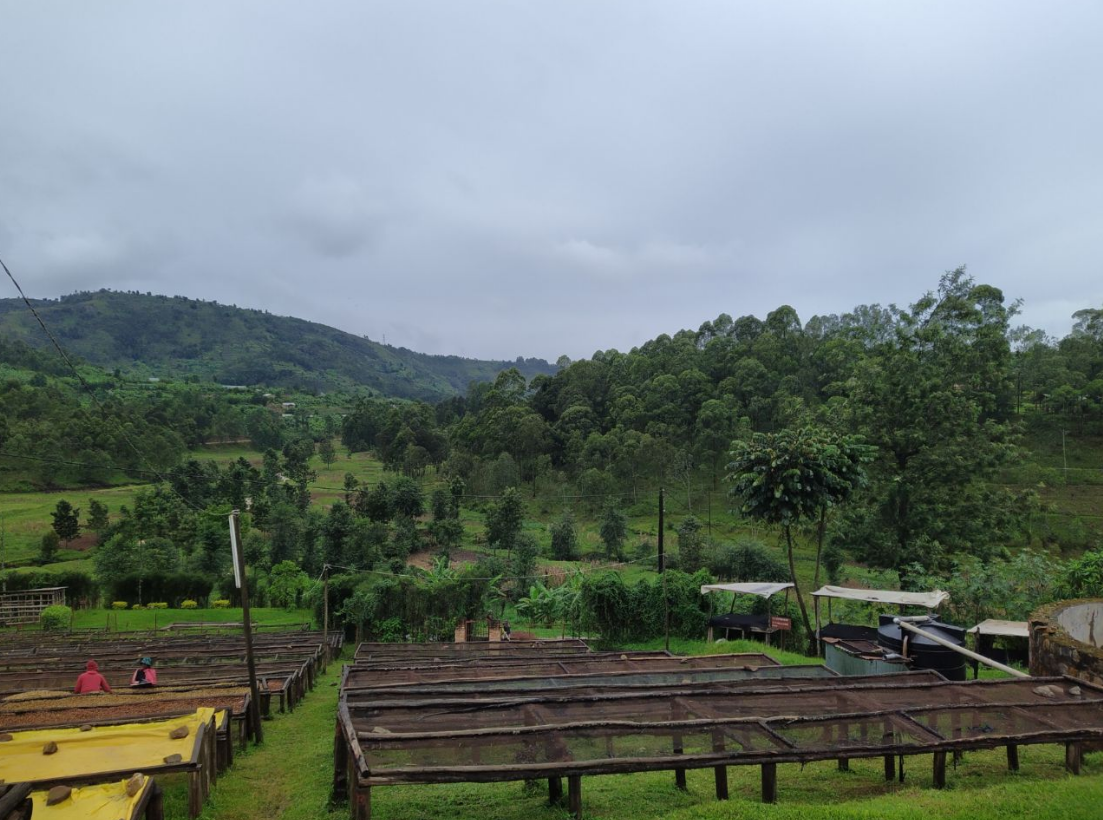
30 March 2023
Field visit Musanze
Musanze, known for many international gorilla visitors and owner of about 6 vulcanos is a must-see sight in Rwanda. Another cooperative visit allowed me to enjoy these sights. We’ve booked a decent 4x4 drive and visited EGSP, which stands for: Early Generation Seed Potato. This cooperative has been allowed to multiply all the pre-basic potatoes to certified seed potatoes in Rwanda.
For those unknown to the potato chain: Potatoes multiply themselves when you plant them. So there are farmers/companies responsible to multiply the potato which will eventually be used to multiply consumer potatoes. The more times multiplies the higher quantity and the lower the costs for the consumer potato. But the multiplying of potatoes is a strictly controlled process to guarantee good quality and prevent diseases from diminishing harvests. It requires a lot of precise work and hygiene.
The main lobby is for the government to facilitate a road. EGSP has been appointed with a field of 45 hectares of land for the multiplying of seed potatoes by the government, Rwandan Agricultural Board. However, after harvesting the potatoes, the employees have to walk about five kilometres while elevating hills to bring potatoes to the road where they can be picked up by truck. This causes delays in getting potatoes to good conservation and can cause damaged potatoes. Thus, creating losses of good seed potatoes. After staying the night we met again to set agreements on how to proceed. After EGSP gives numbers about the losses and possible gains we will draft a policy note to start the lobbying process.
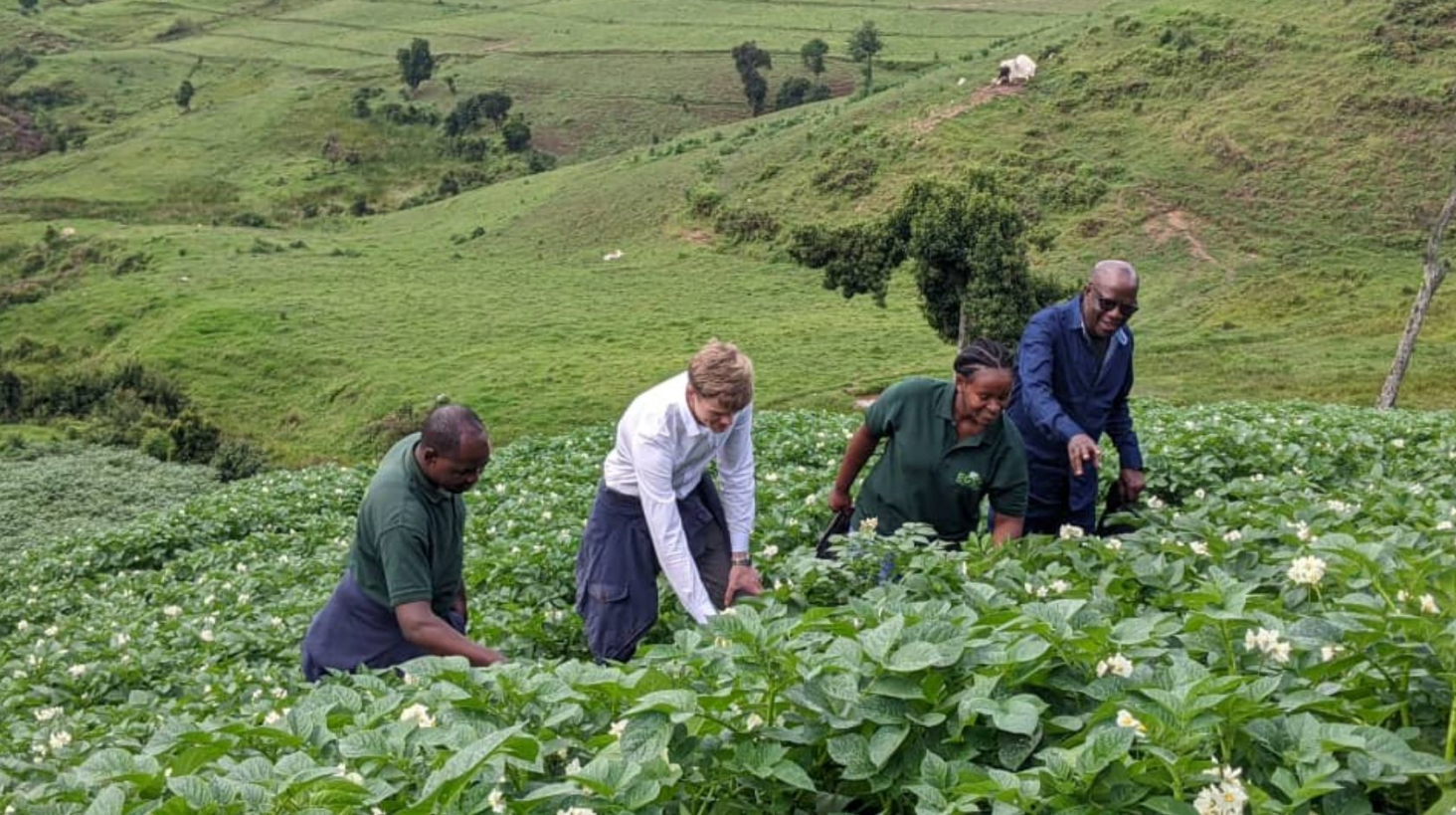
April 2023
Collecting data
Fabrice and I drove 4 hours to Huye, our stay for two nights. Tuesday morning we headed for the first cooperative. It was a beautiful morning and the first collection of 30 surveys went very smoothly. Within half an hour we presented ourselves, my research, and the questionnaire. After about two hours we collected the questionnaires and thanked the participants. This was a great start and gave us promising thoughts for the rest of the two days. We got good- and less good news arriving at the second cooperative. The good news was that there were 70 people at the cooperative's office, plenty for the 30 questionnaires we had for them. The less good news was that they were in a meeting. We agreed to have 3 groups sent to us to follow up with each other.
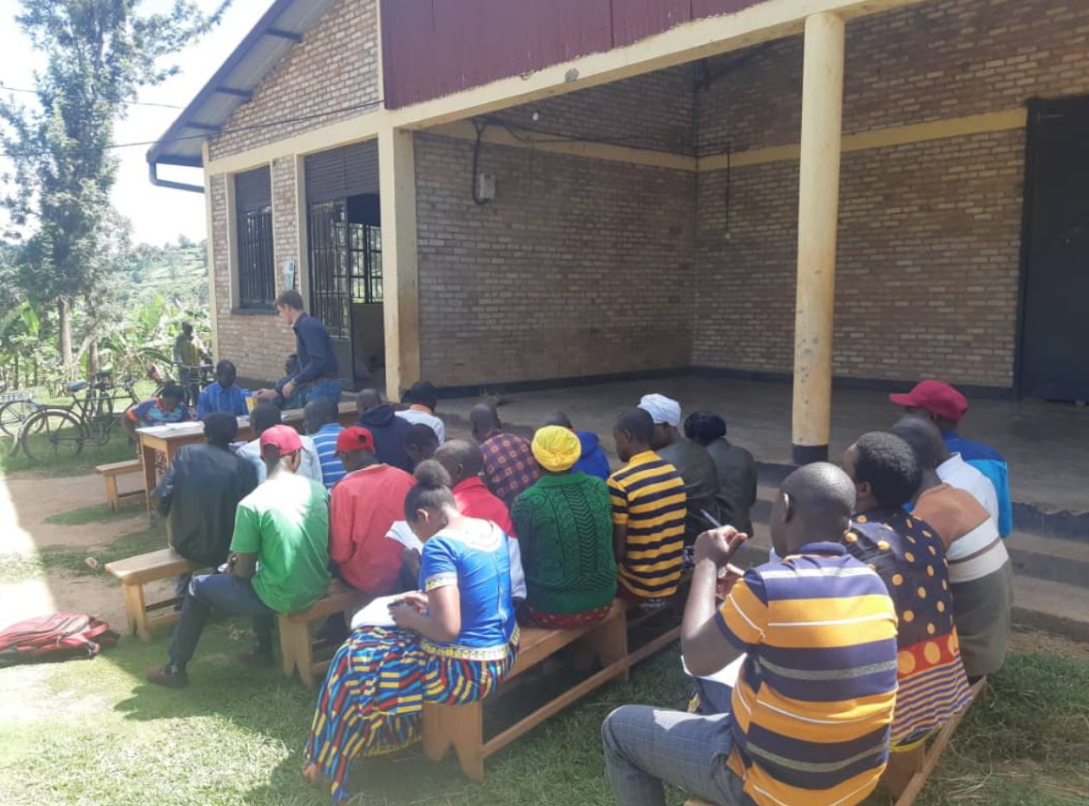
The weather on the second day was a bit less promising. We arrived dry at the first cooperative and happily most participants as well. If it’s raining in Rwanda most people will wait until it stopped before going anywhere. I think they are right to do so, however, I wanted enough respondents as we planned to drive 4 hours back to Kigali in the afternoon. At the end of the day, we collected all the required data.
Quite a lot of waiting in two days, but no complaining because all data is collected! Now the processing and analyzing can start, not the most exciting part, but it will be very interesting to know the outcomes.
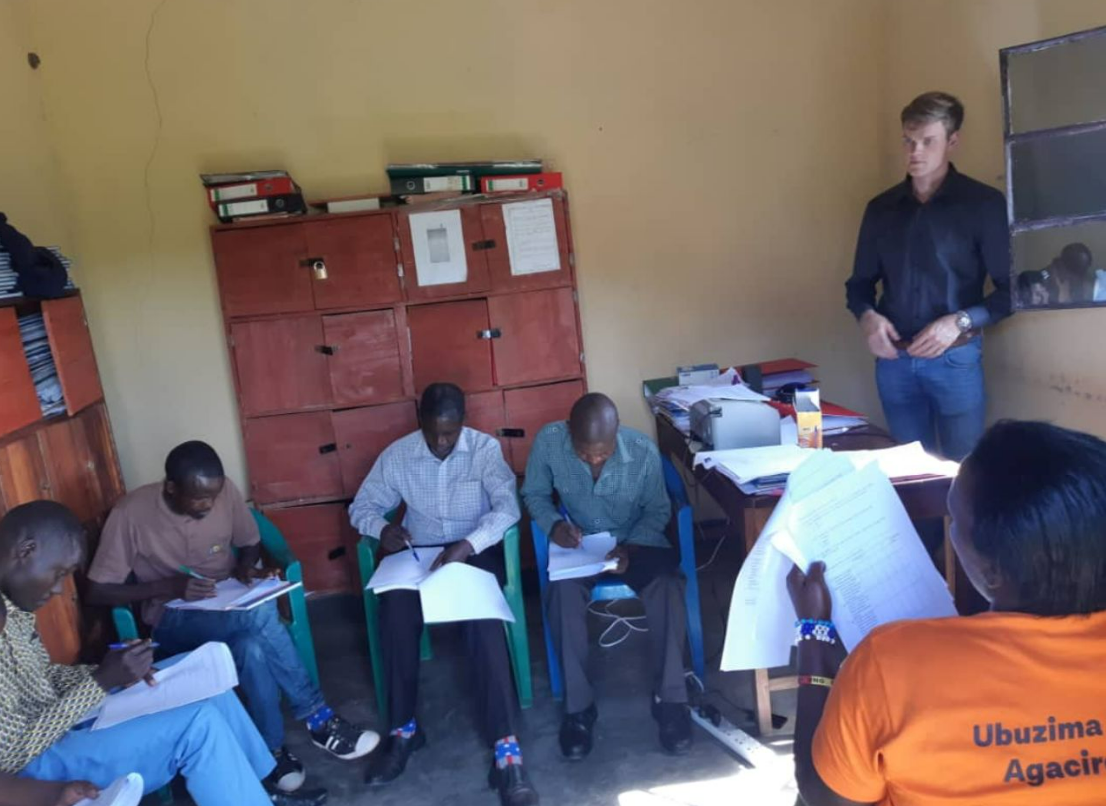
I am still very happy with my choice to go to Rwanda and pleased with all experiences and people I have gotten the opportunity to meet. I look forward to sharing more about my results and possibly some adventures.
